The dive community is teeming with passionate Ocean Torchbearers working to create a healthier future for marine ecosystems through ocean conservation, and the PADI AWARE Foundation is dedicated to accelerating their local actions to drive global change. In 2022, PADI AWARE launched its Community Grant Program, a nonprofit grant program, to help fund the important work of these ocean projects. Since the grant program’s inception, PADI AWARE has awarded more than USD $575,000 in grants to directly support 73 projects run by PADI dive shops and community-based non-profits. These project address key ocean threats, like climate change, marine debris, marine habitat loss, and marine species protection.
PADI AWARE is pleased to announce the newest grant recipients, all of whom are committed to advancing the Blueprint for Ocean Action in their communities.
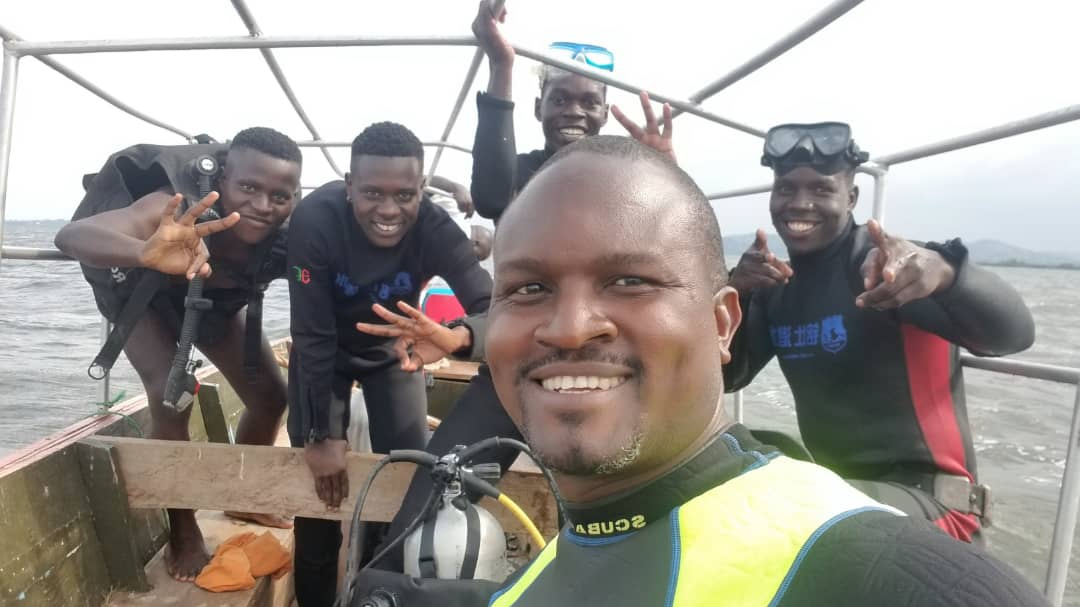 Courtesy of Rwenzori Scuba Divers and Salvage Limited
Courtesy of Rwenzori Scuba Divers and Salvage Limited
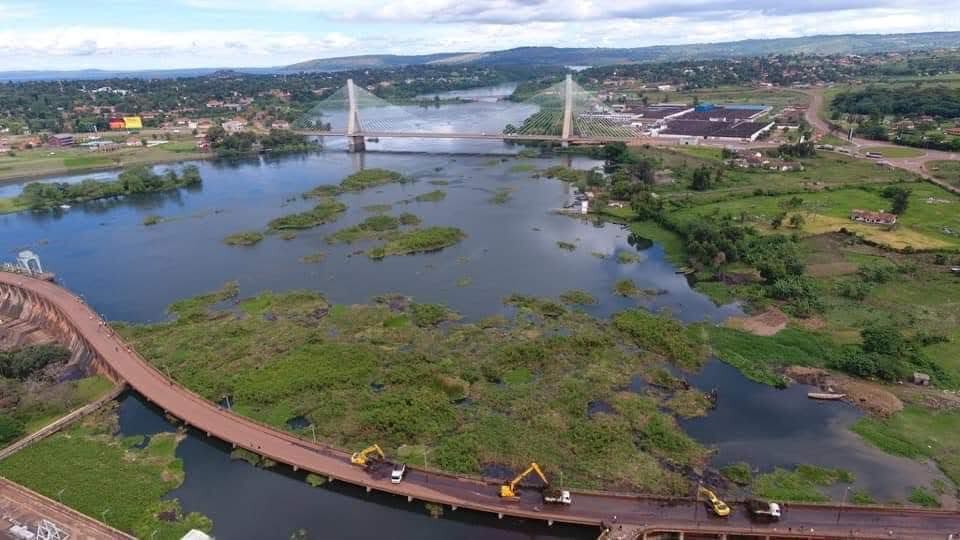 Courtesy of Rwenzori Scuba Divers and Salvage Limited
Courtesy of Rwenzori Scuba Divers and Salvage Limited
Formed in 2021 as a humanitarian response to rescue flood victims in the Kasese District of Western Uganda, Rwenzori Scuba Divers and Salvage Limited is committed to promoting underwater activities and water safety in the East African region.
Waste management (especially concerning plastic goods) is a problem across the region. 90% of rivers in Uganda drain into Lake Victoria, the main source of fish, transport, and water supply for 20 million people. It is also the most polluted body of water in the East African region. The PADI AWARE Foundation grant will provide critical resources for Rwenzori Scuba Divers to establish the Lake Victoria Rwenzori Scuba Divers and PADI AWARE Conservation Program (LVRPA Initiative) to address waste management issues impacting the lake. The initiative aims to reduce poor waste management and improve sanitation issues through community engagement and training, conservation partnerships, youth initiatives, and Dive Against Debris marine debris cleanups and surveys in Lake Victoria and its tributaries.
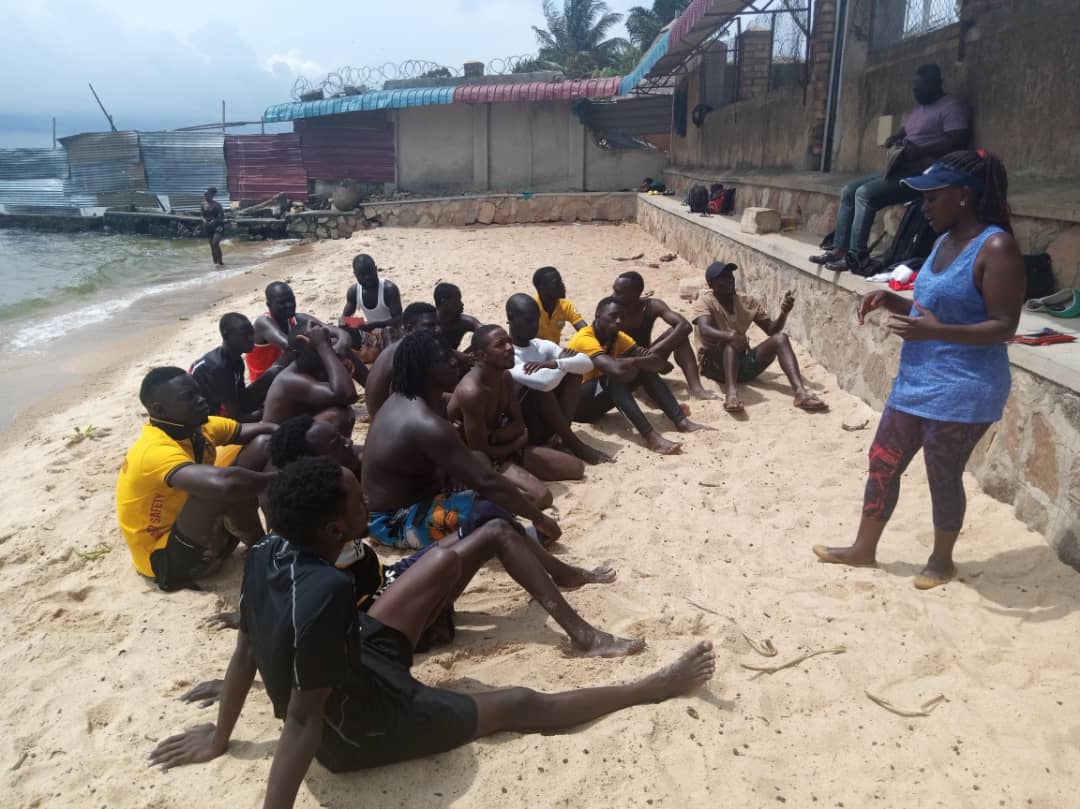 Courtesy of Rwenzori Scuba Divers and Salvage Limited
Courtesy of Rwenzori Scuba Divers and Salvage Limited
“Our Dive Against Debris on Lake Victoria-River Nile Uganda is a game changer to provide data for Uganda to understand inland contribution to save our ocean,” says George William Mukasa, Director and Project Manager of Rwenzori Scuba Divers and Salvage Limited.
In 2000, the local fisherfolk of Les Village, North Bali, started reforming their practices to use sustainable netting methods. They went on to build artificial reefs using concrete platforms to restore the coral devastated from years of cyanide fishing. In 2012, Sea Communities was founded to continue the coral restoration work and ocean conservation efforts with the local fishing community, using educational tourism and dive voluntourism to fund the work. To this day, Sea Communities works with the fishing community and marine scientists from universities around the world to restore the coral habitat. They have also expanded into coral nurseries, micro-fragmentation trials, and mass plantings by volunteer divers and local fisherfolk.
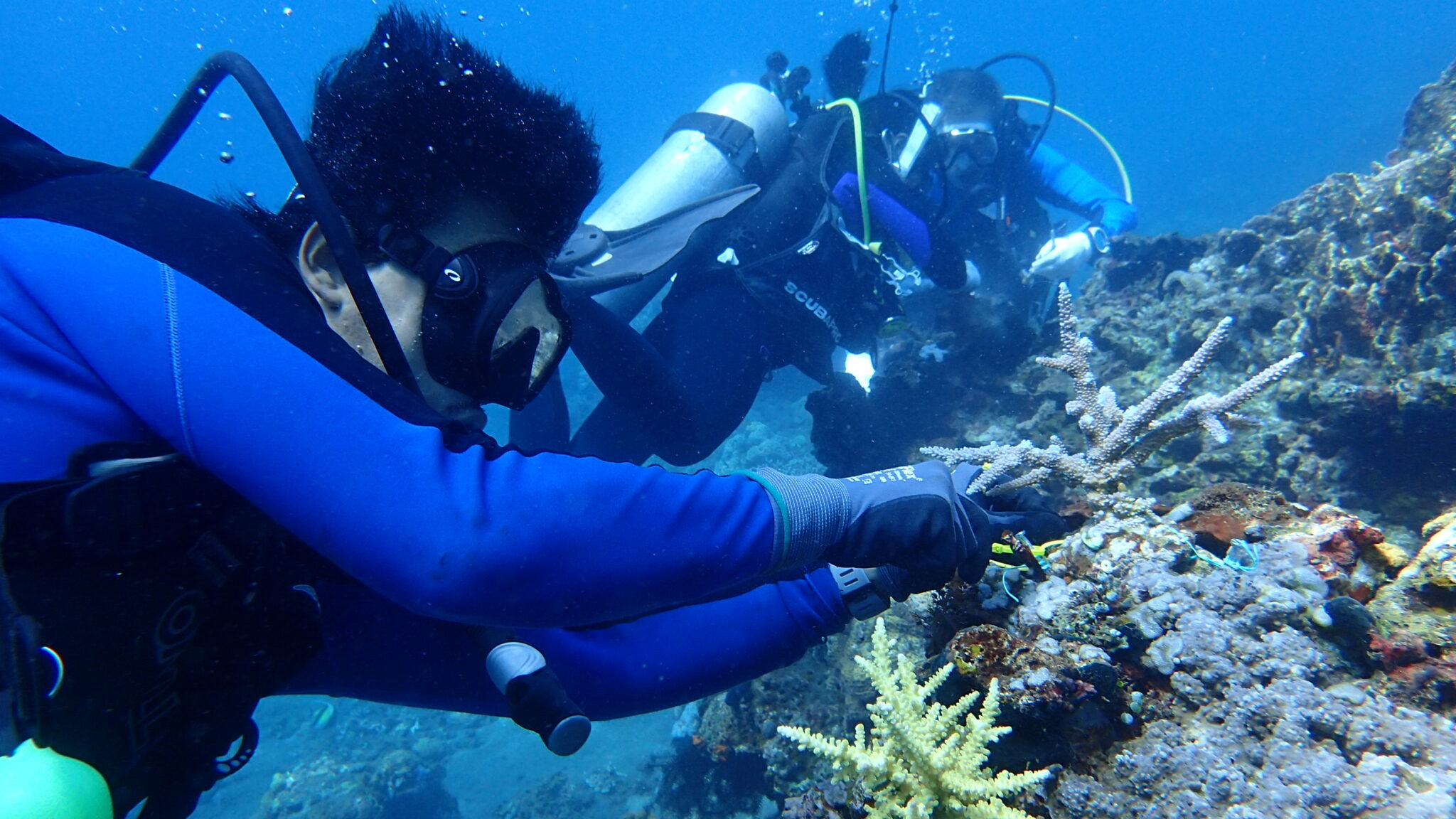 Courtesy of Sea Communities
Courtesy of Sea Communities
The PADI AWARE Foundation grant will enable Sea Communities to continue the work of STARR (Scientific Trial Active Reef Rehabilitation), bringing the community and recreational divers together with scientists. Together, they will conduct science-based coral restoration and monitoring, determine suitable coral species for nursery rearing and transplantation to increase reef resilience and biodiversity, trial the efficacy of different coral attachment methods using locally available materials, create broodstock of non-branching coral in nurseries that can be used for future transplants without harvesting wild coral, determine the feasibility of coral restoration through in situ micro-fragmentation, make in situ coral rearing easy and accessible to coastal communities, and engage and empower local communities and tourists in coral conservation.
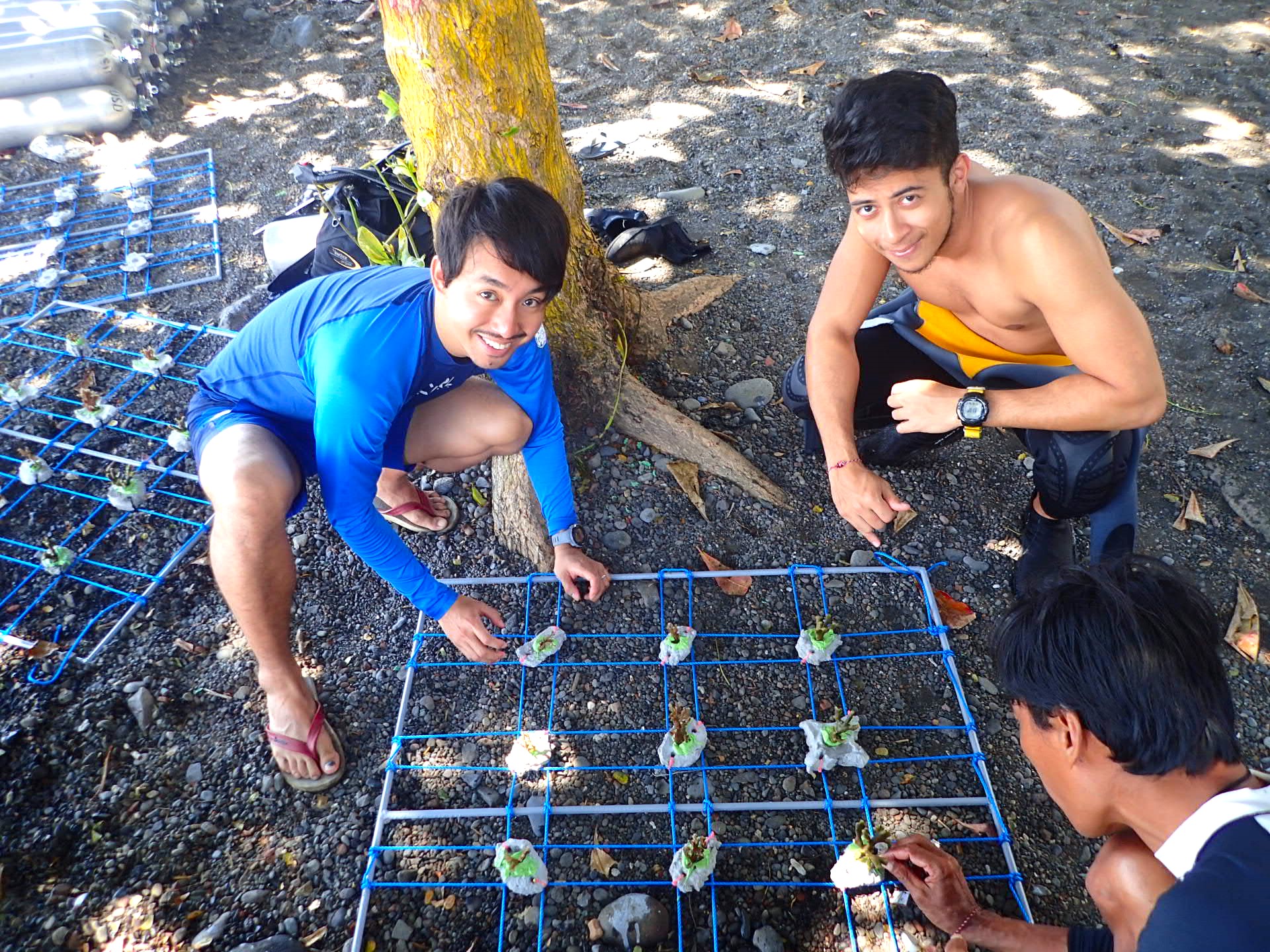 Courtesy of Sea Communities
Courtesy of Sea Communities
“I wish more of humanity could dive and see how wondrous it is underwater,” says Elaine Kwee, Co-Founder, Sea Communities. “Science needs to be communicated to the layperson and particularly, to the coastal communities that need it. STARR draws these elements together, and divers have a rare opportunity to take action.”
Mike’s Dauin Beach Resort, a PADI Five Star Dive Resort in Dauin, Philippines, is committed to responsible diving and protecting the fragile marine eco-system of their local waters. Dauin’s 13km (8-mile) coastline has extensive seagrass beds which provide foraging for green sea turtles. Outside of marine protected areas (MPAs), these seagrass beds suffer from careless fishing practices, plastic pollution, and agricultural runoff. The sea turtles in Dauin are under threat from habitat loss and the life-threatening Fibro Papillomatosis (FP) disease caused by pollution.
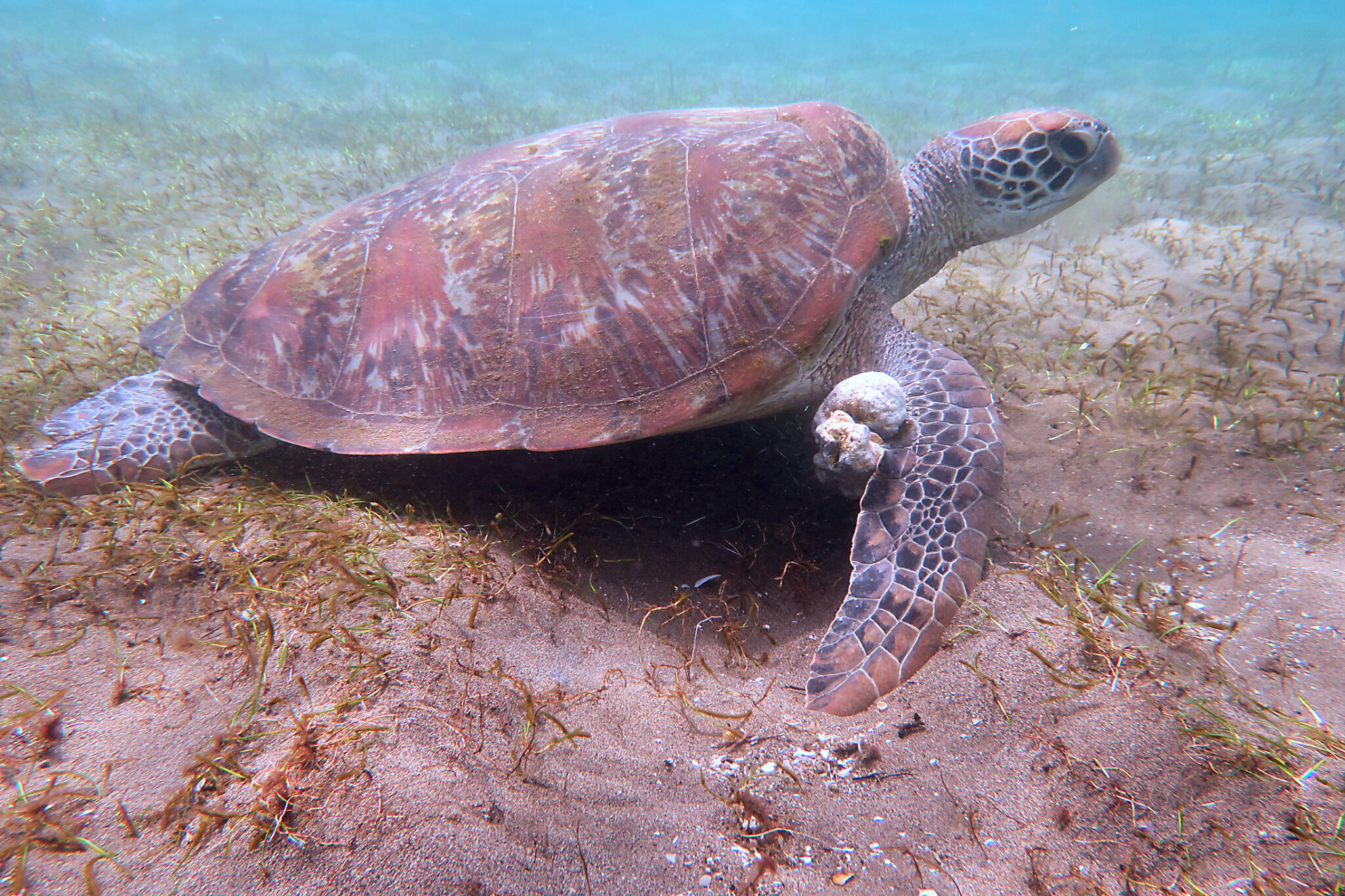 Courtesy of Mike’s Dauin Beach Resort
Courtesy of Mike’s Dauin Beach Resort
The PADI AWARE Foundation Community Grant will support Mike’s Dauin Beach Resort’s Project Pawikan (“sea turtle” in the local dialect), which surveys sea turtles and documents the distribution and health of the turtle population and the sea grass beds they frequent. The survey aims to provide clear data to the Large Marine Vertebrates Research Institute Philippines (LaMaVe) for analysis at the national level to detect any migratory patterns and to contribute to the National Turtle Catalogue. The survey will also provide data and observations of turtles displaying FP to students from the University of the Philippines undertaking a thesis on the possible linkage between FP and water quality in various sites around the Philippines, including Dauin. Working with local and national authorities, Project Pawikan will be in a position to inform decision-makers as to how to safeguard Dauin’s sea turtles for future generations.
For Mike’s Dauin Beach Resort, it all begins with simply understanding more about the habits, health, and distribution of Dauin’s sea turtle population. They hope mapping the population of sea turtles in Dauin will be just the beginning of an ongoing process of understanding and appreciating these enigmatic animals and the challenges they face.
“Project Pawikan will help raise awareness, locally and beyond, of the importance of sea grass beds as green turtle foraging grounds, and the need to improve their protection,” says Jonathan Anderson, Project Pawikan Officer.
With three dive centers located across Bali, Blue Corner Dive is expanding its conservation arm – Blue Corner Marine Research – to build upon the coral restoration work they have been doing in the area since 2017. Blue Corner Marine Research focuses on conservation education, reef health monitoring, and ecosystem restoration and has been working on a large-scale coral restoration effort in an area of degraded reef along the northern coastline of Nusa Penida. Although physically damaged, this reef is arguably the most ecologically important reef in the Nusa Islands, acting as a refuge for the highest number of different coral species in the area.
Funds received from the PADI AWARE Foundation Community Grant will support 1,000 square meters of degraded reef restoration. The project also creates opportunities for Indonesian marine biologists to work and train others in reef restoration projects. Blue Corner Dive’s team of Indonesian women marine biologists were trained as PADI Divemasters this year and will be leading the conservation efforts to restore reefs and educate both divers and the local community.
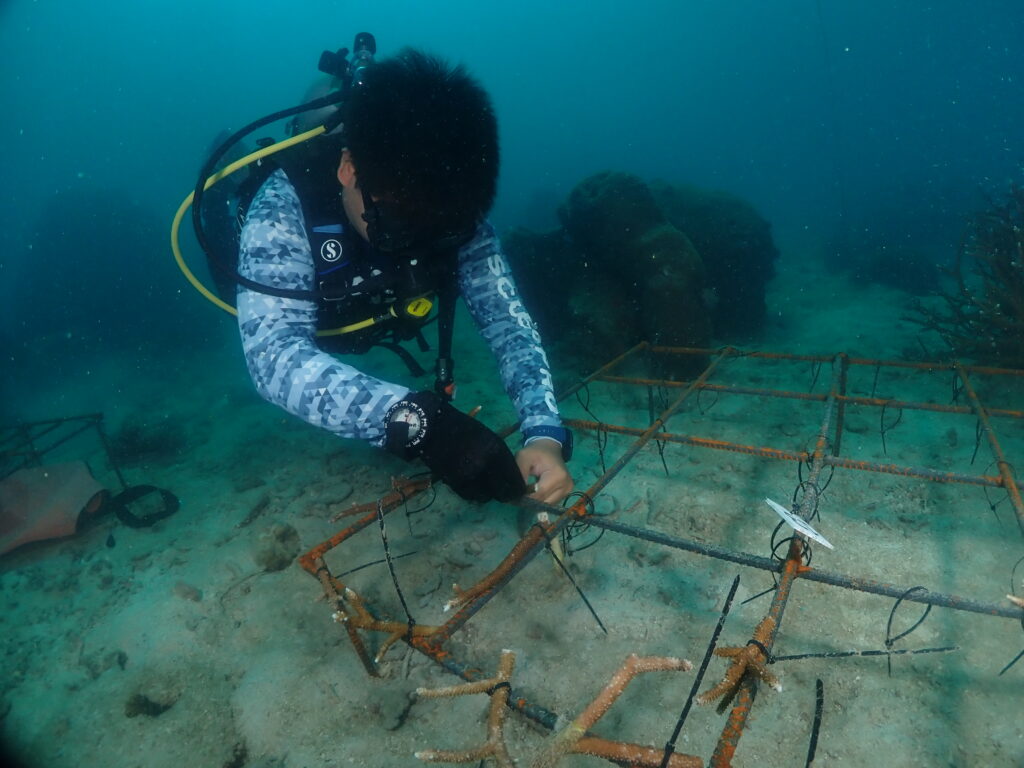 Courtesy of Big Bubble Dive
Courtesy of Big Bubble Dive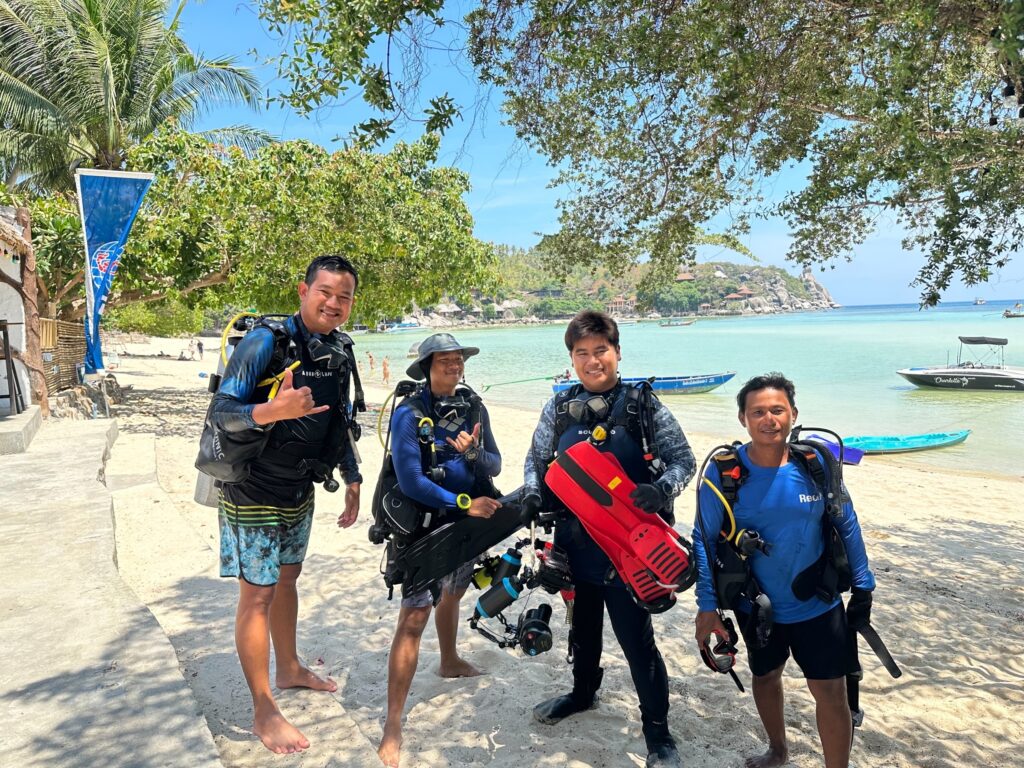 Courtesy of Big Bubble Dive
Courtesy of Big Bubble Dive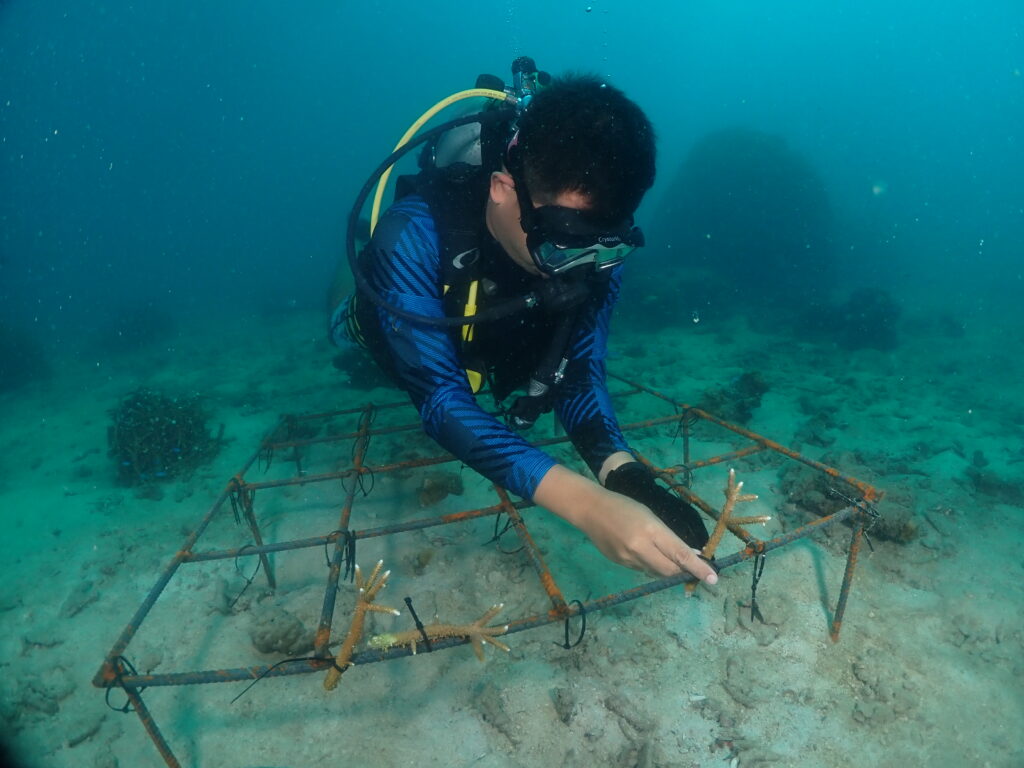 Courtesy of Big Bubble Dive
Courtesy of Big Bubble DiveOperated by locals within the community of Koh Tao, Thailand, Big Bubble Dive Resort is committed to restoring coral reefs in the area. Since 2017, they have been working with the Department of Marine and Coastal Resources Thailand, planting more than 100,000 coral fragments around the island. With the support of the PADI AWARE Foundation, Big Bubble Dive Resort expanded the project in 2022.
With a proven survival rate of 80%, the team in Koh Tao is now embarking on new reef restoration projects with the funds from the PADI AWARE Foundation Community Grant. They will plant 3,000 coral fragments in Chalok Bay to commemorate Big Bubble Dive Resort’s 30th anniversary. The artificial reefs they plant will serve as a resource for interested divers to learn more about coral reef conservation efforts.
“The oceans are too big for one single hand to protect and care for,” says Mr. Chatsakul Kaewpanao, PADI Course Director and General Manager of Big Bubble Dive Resort. “However, if many small hands work together, our oceans will definitely get better.”
If you’re part of a dive center or marine conservation project with a passion to take things further, you can apply for the next round of funding. The PADI AWARE Foundation Community Grant is one of the best ocean conservation nonprofit grants you can apply for. Click the button below for more information on how to apply.
More Information on the Application Process
To learn more about how you can donate to support the PADI AWARE Mission Hub Community Grant Program or take action for ocean conservation in your community, visit www.padiaware.org.
Share This
